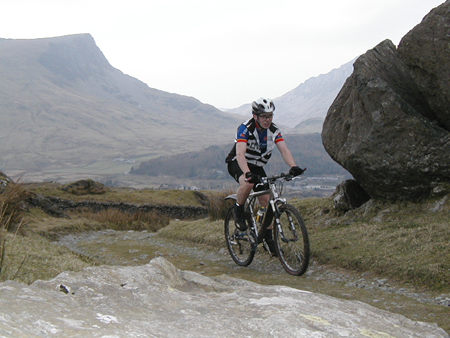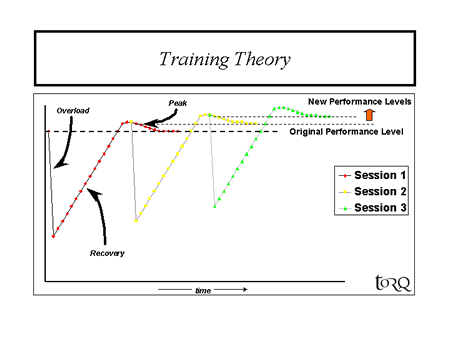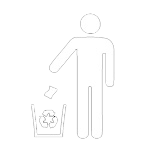If you want to get the most out of your training, it really helps if you understand the scientific basis of training theory. Poorly motivated riders may suffer because they don’t train hard enough, whilst the over motivated typically train to the point of exhaustion and never truly fulfil their potential, because they are constantly tired. This feature and the subsequent attachments are designed to provide you with extensive insight into the fundamental principles of training.
Make sure that you overload.
Successful training is all about providing a positive training stimulus. A training stimulus is a signal to your body to adapt and get stronger. Another word for this is ‘Overloading’ and the higher the overload, the bigger the improvement. For example, your training route is 20 miles long, it takes you 1 ½ hours to complete and you ride twice per week. You can overreach by manipulating one of the following variables:
a) Intensity: Force yourself to ride the same distance at a faster pace, therefore bringing your time down to perhaps 1 hour 27 minutes for the 20-mile course.
b) Duration: Ride at the same speed as you did previously, but cover a slightly longer distance, say 25 miles instead of 20.
c) Frequency: Add a third session into your weekly schedule.
Don’t forget how important recovery is.
The flip side to the coin is that the larger the overload is, the longer you will need to recover to allow the adaptations to occur. Many people make the mistake of not resting for long enough after a hard training session. Always remember that overloading and recovery have equal importance. I have known of many over motivated riders that hover well below their true potential because they don’t rest for long enough after a heavy training session.
What is adaptation?
When you overload, your body is, in effect, forced into a state of shock. This is interpreted by the body as a signal to get stronger and prepare it’s self for similar shocks in the future. Adaptation is encouraged whilst you are resting and recovering, because the body has plenty of energy at this time for growth and repair. Another training session too soon after the initial shock will slow down adaptation and you are likely to feel tired (a bad session). Assuming that you rest for long enough after you’ve overreached, your body will soon attain an elevated level of form, or a peak.
How long should I recover for?
The golden question! The answer I’m afraid is… it depends. There are so many variables that dictate your recovery rate; current fitness level, age, amount and quality of sleep, nutrition, gender, occupation, genetics (to name a few), that you really need to figure out what works for you. A good coach will look at your performance over a period of time and help you to understand how your body responds to the different training methods applied. However, as a rough guide, allow at least 48 hours recovery between your sessions (train every other day). In my experience, it is better to slightly under-train than over-train.







